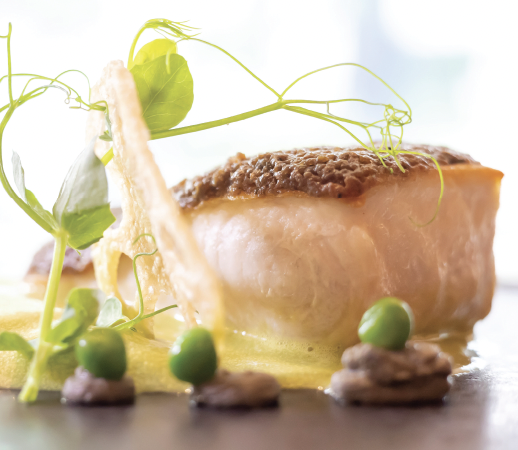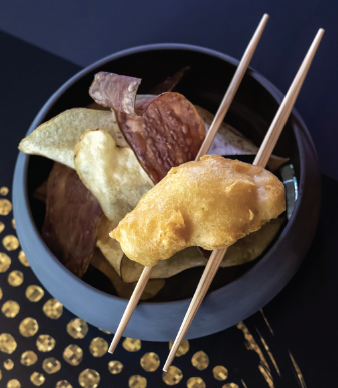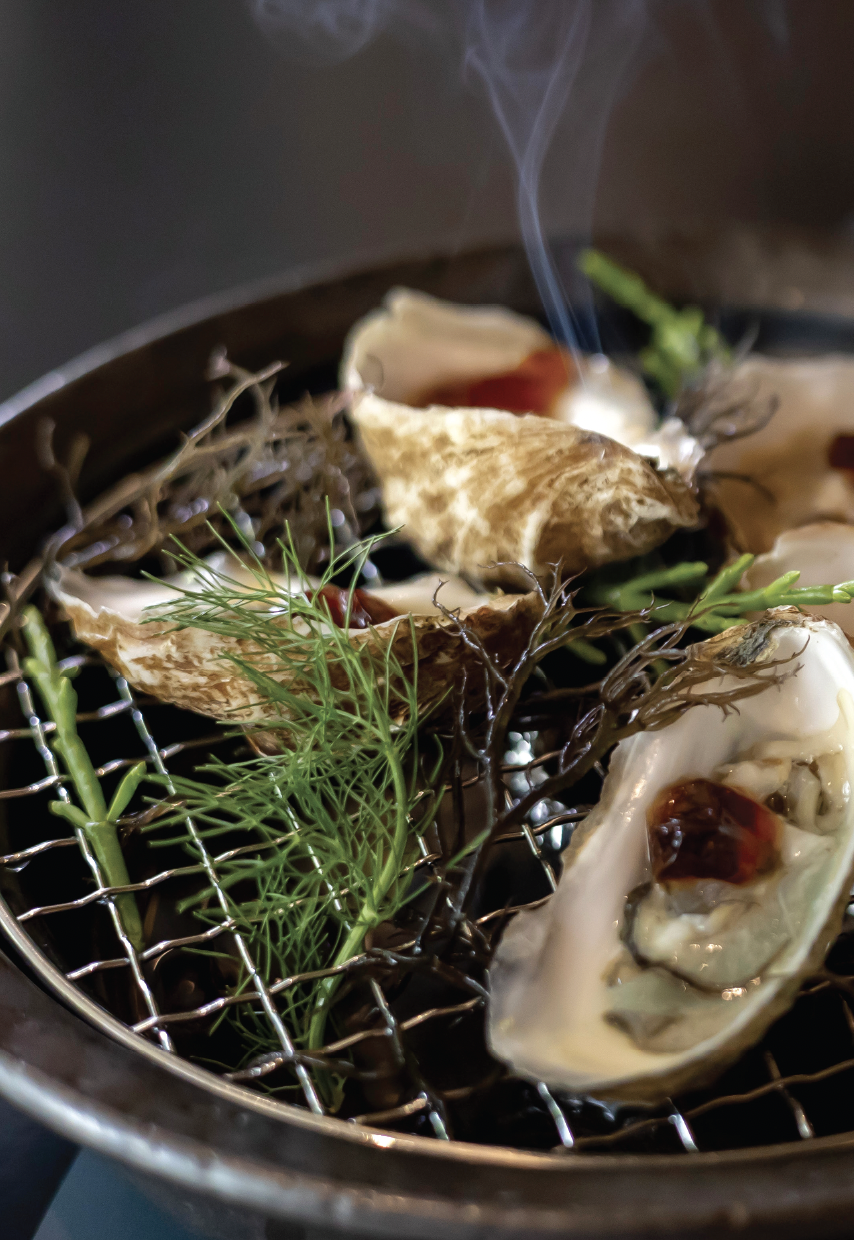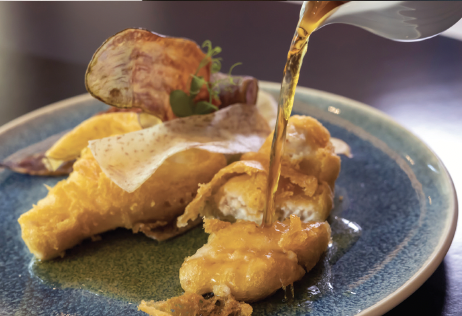Mother Ocean




When chef Vikram Garg had the opportunity to set up his new restaurant in familiar territory over at Halekulani’s sister property Halepuna Waikiki, it didn’t take long for him to come up with a concept. Thus, UMI — meaning “ocean” in Japanese and “mother” in Arabic — was born, built on the idea of the nurturing, life-giving abundance of Hawai‘i’s seas, combining fresh seafood and fine technique, without heavy saucing to allow the beauty of the seafood to shine through.
“I love seafood, I love fresh fish,” Garg says. “When I travel, I see what other chefs are doing and the trend in food is simplicity. Being artistic is important but over time chefs overlooked the idea that you can’t have too many ingredients on a plate.
“I try to put things in balance, because some make food so complex they forget that nutrition and wellness are important aspects of what we eat.”
Surprisingly, on an island surrounded by water, O‘ahu has no dedicated seafood restaurant and Garg viewed this as a great disappointment, because of his own love of seafood, having grown up on an island himself in the Andaman and Nicobar Islands territory of India.
“It was similar to Hawai‘i in terms of abundance of seafood, taro and tropical fruit.”
It was his love of the food that led him to his career, which he says didn’t start with a love of cooking, but a love of eating. It didn’t take long for him to start following his grandmom around, learning the laborious old-fashioned technique of churning butter, among the scratch techniques he will employ at UMI, making cultured butter from sour cream.
Having also learned in Hawai‘i and through his travels a love of the spare, elegant Japanese aesthetic, he will also apply light marinades and will be making his own koji from fermented rice to add umami to dishes.
“Diners cannot put a finger on why they’re enjoying it because they’ve never tasted it before, but they know there’s something special about it.”
From his father, he learned of the properties of fruit that made different varieties best suited for pickling, making relishes, jams or jellies. He’s been making his own jelly with Kula strawberries and hibiscus.
“We’re not buying condiments out of a bottle or jar; we’re making it because we can control the experience.”
In the morning, the restaurant will be open for classic breakfast items with inspiration from around the globe including a croque madame; the Maghrebi shakshuka, a dish of eggs in a spiced, aromatic tomato sauce; and masala omelet with onions, tomato, cilantro, jalapeños and turmeric.
But it’s in the evening that the UMI concept springs to life. Although his dinner menus will change according to season and local availability, dishes might include fish and chips of local root vegetables; cold-smoked oysters with tosazu gelée; ahi crudo with daikon, scallop carpaccio with cucumber namasu and mushroom dashi; and crispy taro — a dish from his childhood — perfumed with curry leaf and served with lomilomi tomato.
He will also offer a caviar bar of private collection Osetra caviar presented with onsen egg, burdock cream and finger lime.
“Cooking is what I love and it’s about talking to the ingredients, understanding them, keeping things light, not manipulating the seafoods too much,” Garg says.
He’s working with fishermen and in a push toward sustainability wants to help people learn an appreciation for less popular fish such as shutome, broadbill swordfish that many consider to be dry.
“I ask, ‘What can we do with it? How can we make something that’s not chewy or rubbery on your palate?’
“What I love about my profession is that I keep learning. It’s always evolving, and every day is fun. It’s like being a kid in a candy store. My mind is spinning all the time, writing down ideas.”
UMI by Vikram Garg, 2233 Helumoa Road, (808) 744-4244, umibyvikramgarg.com
